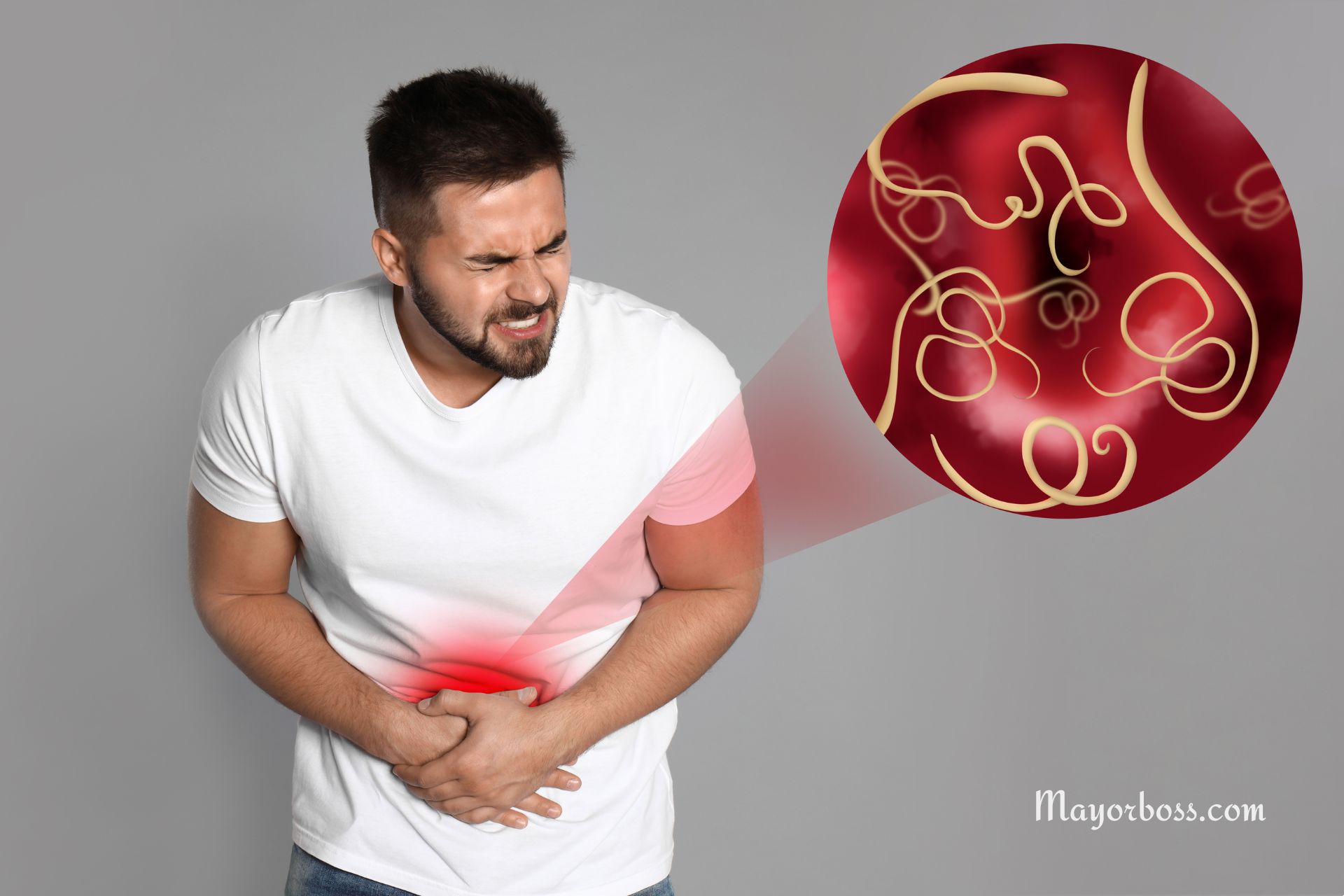6 Warning Signs that Your Body is Full of Harmful Parasites (Intestinal Worms)
Intestinal worms are parasites that live in the gut. They take nutrients from the food you eat. When these parasites grow in your intestines, they may cause health problems. Untreated intestine worms may cause complications. Therefore, recognizing the signs early can help you get treatment and avoid complications. Read on to learn about warning signs that you may have a parasitic infection. If you notice any of these signs, please talk to your doctor for testing and treatment.

Abdominal Pain and Bloating
Persistent stomach pain and bloating are common signs of an infection. The worms irritate the lining of the intestines, which can cause sharp or dull pain. Bloating may occur when your body has trouble digesting food because of the worms. These symptoms can get worse over time if the infection is not treated. If you experience ongoing pain or bloating, have your doctor check your health.
Changes in Bowel Movements
Changes in your bathroom habits may indicate the presence of worms. You might notice diarrhea, constipation, or changes in the color and consistency of your stool. Parasites disturb the normal process of digestion. Sometimes, your body tries to flush out the worms with diarrhea. Other times, the parasites can block your intestines, causing constipation. In some cases, individuals with intestinal worms may also experience dysentery. If you see sudden changes in your bowel movements, talk with your doctor.
Fatigue and Weakness
When parasites take away the nutrients you need, you may feel tired and weak. Without enough vitamins and minerals, your body loses energy even after a good night’s sleep. In some cases, a lack of nutrients may lead to anemia, a condition where there are too few red blood cells to carry oxygen through the body. If you feel very tired or weak for no clear reason, ask your doctor to check your health.
Itchy Skin or Anal Itching
Itchy skin, especially around the anus, can be a sign of a parasitic infection. Infections caused by pinworms are known to cause itching near the anus. Pinworms come out at night to lay eggs on the skin, which leads to constant irritation. This itching can be very uncomfortable and may disturb your sleep. Although other problems can cause itching, it is important to have it checked by your doctor if it lasts for several days.
Visible Worms in Stool
Seeing worms in your stool is a clear sign of an infection. Some worms may be small and white, like thin strands. Others may be larger or show segments. Even a few worms in your stool means that parasites are present in your intestines. If you notice worms when you go to the bathroom, seek medical help immediately. Your doctor can run tests to confirm the infection and suggest the proper treatment.
Unexplained Weight Loss
Losing weight without trying may be a sign of a parasitic infection. Worms like tapeworms or roundworms live in the intestines and use the nutrients from your food. When your body loses these important nutrients, you may drop weight even if your diet remains the same. This weight loss can weaken your body and lower your energy. If you lose weight suddenly along with other symptoms, ask your doctor for an evaluation.
Prevention and Treatment
Preventing a parasitic infection is easier than treating one. Good hygiene stops parasites from entering your body. Always wash your hands with soap and water before eating and after using the bathroom. Clean and cook food thoroughly, and avoid drinking water that may be contaminated.
If your doctor suspects an infection, a stool test may be ordered. Once the infection is confirmed, your doctor will prescribe antiparasitic medication to clear the parasites. It is important to follow the instructions and finish all your medicine to ensure the infection is cleared completely.
When to Seek Medical Advice
If you notice one or more of these warning signs, do not wait for the symptoms to get worse. A prompt visit to your doctor can help diagnose the problem early. Your doctor may ask about your symptoms, travel history, and eating habits. With test results, they can create a treatment plan that fits your needs. Early treatment can prevent further complications and help you feel better sooner.
